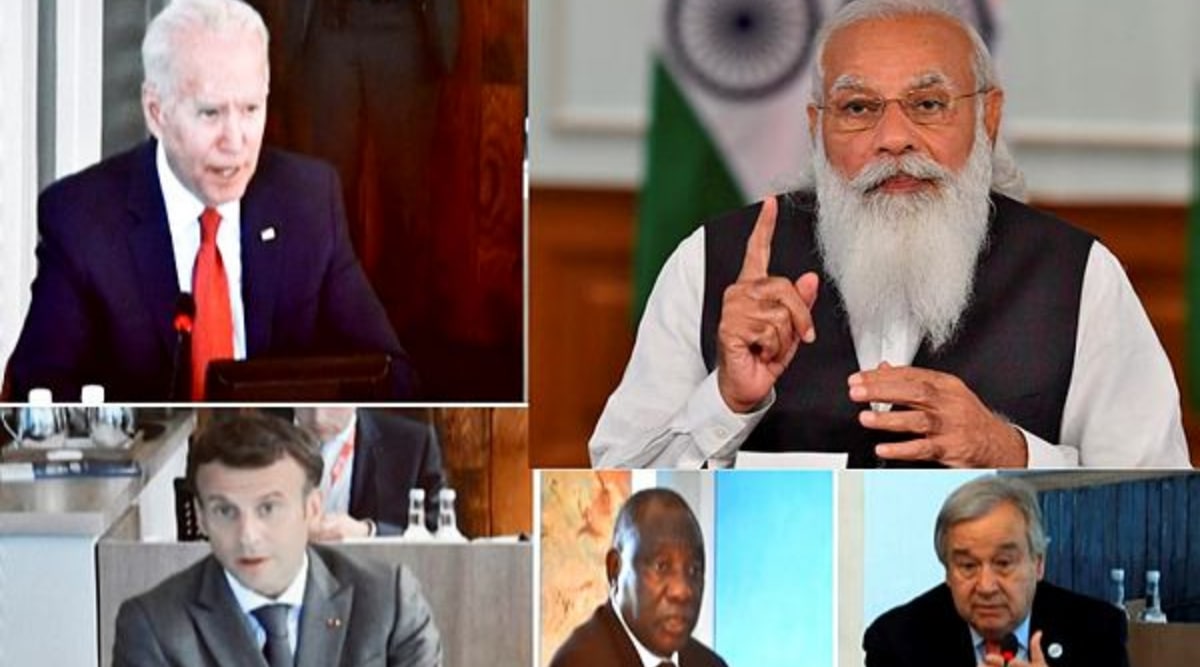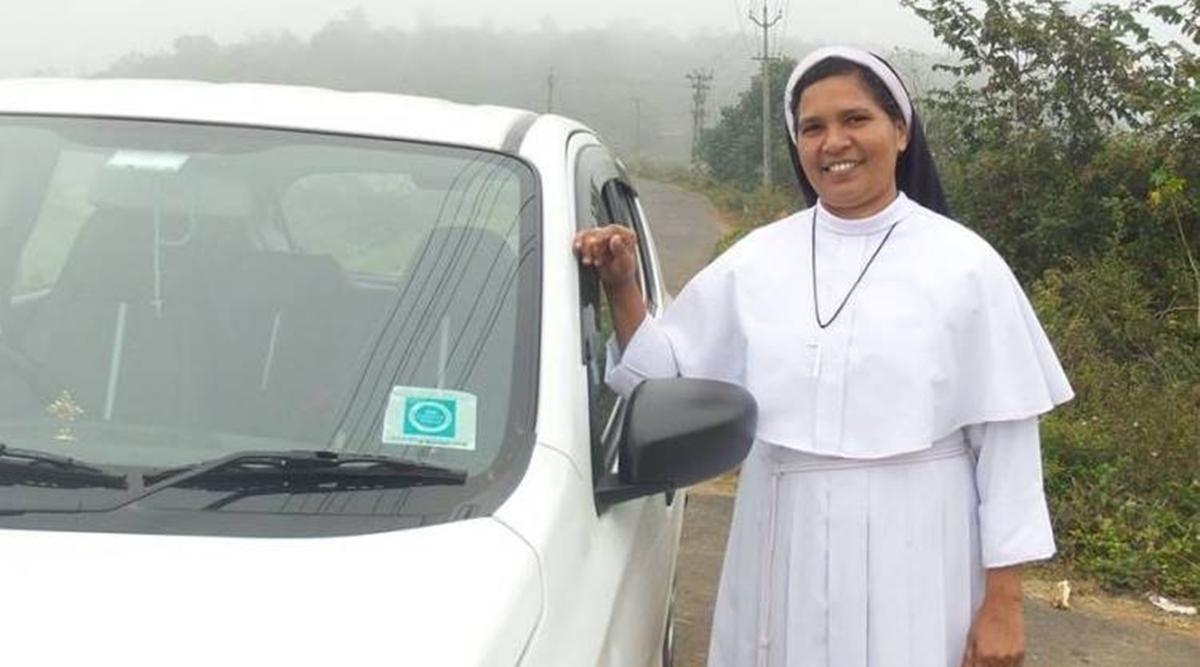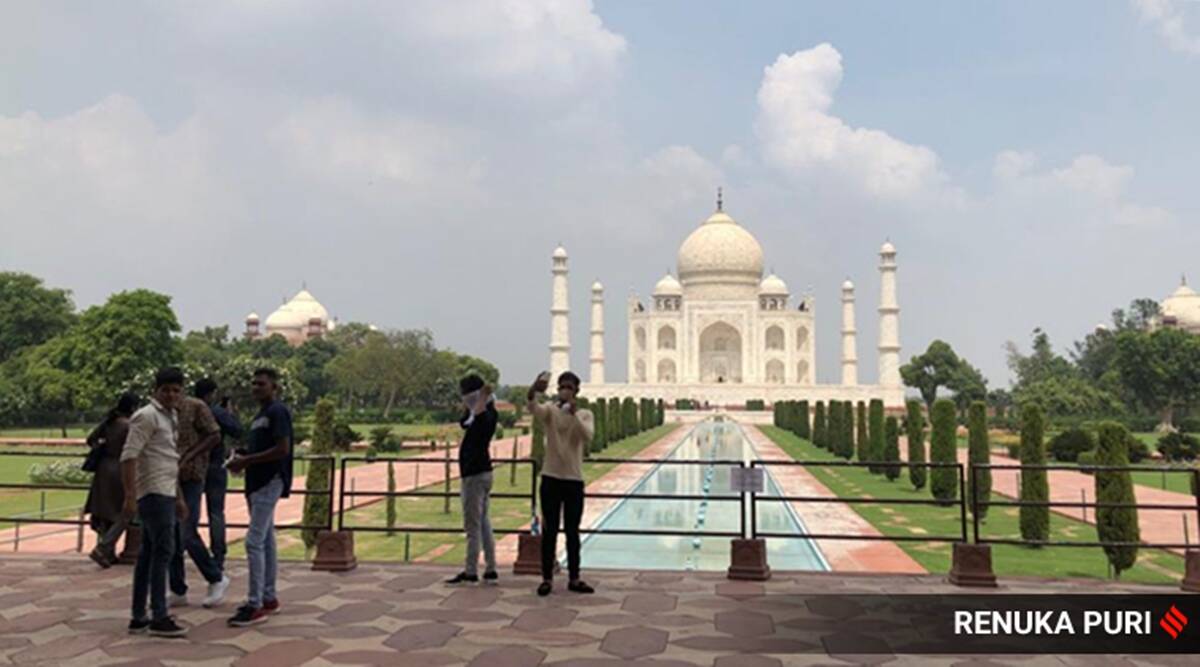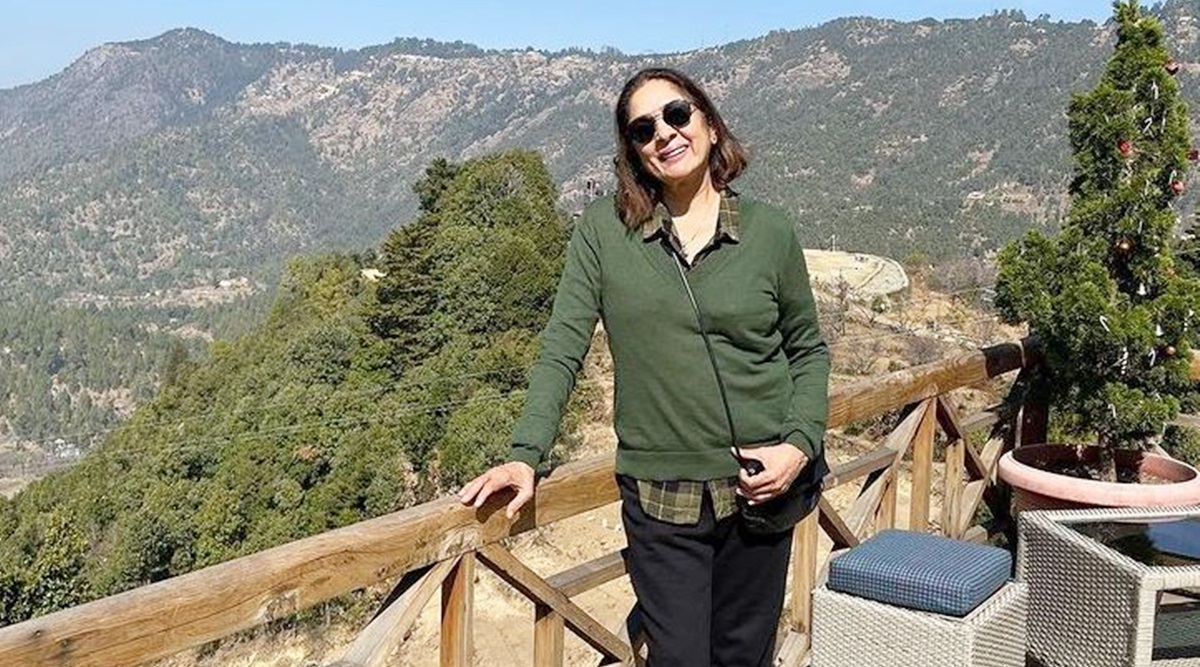
India Sunday signed off on a joint assertion by G-7 and visitor nations on “open societies” that reaffirm and encourage the values of “freedom of expression, each on-line and offline, as a freedom that safeguards democracy and helps folks stay free from concern and oppression”.
The assertion additionally refers to “politically motivated web shutdowns” as one of many threats to freedom and democracy.
The ‘Open Societies Assertion’ was adopted on the finish of an outreach session titled ‘Constructing Again Collectively—Open Societies and Economies’, the place Prime Minister Narendra Modi was invited as a lead speaker.
Collaborating by video-conference, Modi stated that “democracy and freedom had been part of India’s civilisational ethos”. Nonetheless, he “shared the priority” expressed by a number of leaders that “open societies are significantly susceptible to disinformation and cyber-attacks”.
In keeping with the Prime Minister’s Workplace (PMO), Modi additionally confused on the necessity to make sure that “our on-line world stays an avenue for advancing democratic values and never of subverting it”.
The joint assertion was signed by the G-7 nations, and India, South Korea, Australia and South Africa, with host British Prime Minister Boris Johnson calling them “Democracies 11”.
Whereas the assertion is directed at China and Russia, India has been beneath scrutiny over Web curbs in Jammu and Kashmir even because the Authorities is locked in a face-off over its new IT guidelines with tech giants equivalent to Twitter, which described a police search at its places of work in India final month as a “potential menace to freedom of expression”.
The joint assertion at G-7 stated: “We’re at a crucial juncture, going through threats to freedom and democracy from rising authoritarianism, electoral interference, corruption, financial coercion, manipulation of knowledge, together with disinformation, on-line harms and cyber assaults, politically motivated web shutdowns, human rights violations and abuses, terrorism and violent extremism.”
It’s learnt that New Delhi signed off on the assertion after making its reservations recognized to the negotiators from G-7 nations. Exterior Affairs Minister S Jaishankar, who had participated within the G-7 International Ministers assembly in Could, had stated that “open societies and private freedoms require cautious nurturing. Should be on guard towards faux information and digital manipulation.”
The “open societies” assertion additionally affirmed “human rights for all, each on-line and offline, as set out within the Common Declaration of Human Rights and different human rights devices, and opposition to any type of discrimination, so that everybody can take part absolutely and equally in society”.
It stated that democracy consists of “every citizen’s proper to vote in free and honest elections and everybody’s proper to assemble, organise and affiliate peacefully, inside a system of accountable and clear governance”.
It additionally dedicated to “strengthen open societies globally by defending civic area and media freedom, selling freedom of expression, freedom of meeting and affiliation, and freedom of faith or perception, and by tackling all types of discrimination, together with racism.”
For India, these are essential commitments amid international concern over the controversial Citizenship Modification Act (CAA) that was cleared by Parliament in 2019.
One other G-7 assertion — not signed by India and different outreach nations — hit out at China on “human rights and elementary freedoms” in Xinjiang and Hong Kong, and the unilateral makes an attempt to vary the established order within the South China Sea. It additionally known as for a clear and well timed WHO Covid origins examine in China.
On the second day of the outreach periods, Modi additionally took half in one other session titled ‘Constructing Again Greener: Local weather and Nature’. Highlighting the non-democratic and unequal nature of world governance establishments, he known as for the reform of the multilateral system as the very best sign of dedication to the reason for Open Societies, the PMO stated.
Within the session on local weather change, the Prime Minister highlighted that the planet’s ambiance, biodiversity and oceans can’t be protected by nations appearing in silos, and known as for collective motion on local weather change.
Talking about India’s “unwavering dedication” to local weather motion, he talked about the dedication by Railways to realize Internet Zero Emissions by 2030. He confused that India is the one G-20 nation on monitor to fulfill its Paris commitments.
Modi additionally took be aware of the growing effectiveness of the 2 main international initiatives nurtured by India — the CDRI and Worldwide Photo voltaic Alliance.
The Prime Minister confused that creating nations want higher entry to local weather finance, and known as for a holistic method in the direction of local weather change that covers mitigation, adaptation, expertise switch, local weather financing, fairness, local weather justice and life-style change.









